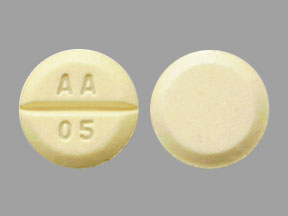
Mephyton Coupons & Savings Card – Discount Prices from $19.10
Brand for: Phytonadione
My prescription
Edit
5MG, Phytonadione (1 Tablet)
Select pharmacy

CVS
$22.11
COUPON PRICE
Walgreens
$19.10
COUPON PRICE
Albertsons
$19.88
COUPON PRICE
Walmart
$48.60
COUPON PRICEMephyton savings card
Show this card to your pharmacist
Walgreens
$19.10
BIN
ID
PCN
GRP
011867
LHB62E0467
HT
LABH001
Powered by
More prescriptions for vitamin K deficiency
More prescriptions for vitamin K deficiency
Mephyton (Phytonadione) dosage forms
Dosage Quantity Price from Per unit 5MG 1 Tablet $21.80 $21.80 5MG 20 Tablets $94.54 $4.73 5MG 30 Tablets $132.66 $4.42 5MG 100 Tablets $407.51 $4.08
| Dosage | Quantity | Price from | Per unit |
|---|---|---|---|
| 5MG | 1 Tablet | $21.80 | $21.80 |
| 5MG | 20 Tablets | $94.54 | $4.73 |
| 5MG | 30 Tablets | $132.66 | $4.42 |
| 5MG | 100 Tablets | $407.51 | $4.08 |
What is the drug Mephyton used for?
Mephyton is used to treat or prevent bleeding due to a deficiency of vitamin K, which is essential for blood clotting. It is often prescribed to counteract the effects of blood thinners like warfarin when there is a risk of excessive bleeding.
Why is phytonadione prescribed?
Phytonadione is prescribed to treat or prevent vitamin K deficiency, which can lead to bleeding problems. It is often used in cases of anticoagulant overdose, certain liver diseases, or in newborns to prevent bleeding.
Using the SaveHealth discount card, what is the price of Mephyton without insurance?
Using the SaveHealth discount card, the price of Mephyton without insurance is $19.10.
What is the price of Mephyton at CVS?
The price of Mephyton at CVS is $22.11.
What is the price of Mephyton at Walgreens?
The price of Mephyton at Walgreens is $19.10.
What is the price of Mephyton at Walmart?
The price of Mephyton at Walmart is $48.60.
